Gaza cease-fire unravels; Israeli soldier captured
CNN) -- The latest attempt at an Israel-Hamas cease-fire disintegrated Friday. After the capture of an Israeli soldier, the conflict edged closer to escalation than to peace.
The soldier was
"abducted" by Palestinian militants during an attack in Gaza in which
two other Israeli soldiers died, Israeli military Lt. Col. Peter Lerner
told CNN's Wolf Blitzer. The soldiers were decommissioning a tunnel at
the time, Lerner said.
The Israel Defense Forces
earlier identified soldier as 2nd Lt. Hadar Goldin. A search operation
is under way to find him, Lerner confirmed.
"We need to bring him home," Lerner said later in the interview.
Hopes for an announced
72-hour humanitarian cease-fire between Israel and Hamas didn't even
last two hours, by some accounts. As has been a hallmark of the
conflict, each side blamed the other for resuming the fighting.
The pause appears to have
eroded after about 1½ hours in Rafah, a city in southern Gaza, with the
deadly attack in which Goldin, 23, was taken. Lerner told reporters
that while the soldiers were decommissioning a tunnel, a militant
emerged from the tunnel and detonated a suicide bomb.
Around that time,
Palestinian sources told CNN they could hear shelling in the area. The
Gaza Health Ministry said an Israeli attack on Rafah killed at least 40
people and wounded 250.
Hamas spokesman Osama
Hamdan blamed Israel's actions for violating the cease-fire, saying the
Palestinian militants have the right to protect themselves.
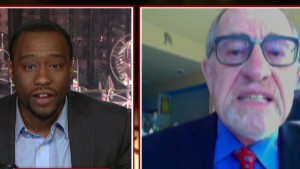 Fiery debate over Israel, Hamas comments
Fiery debate over Israel, Hamas comments
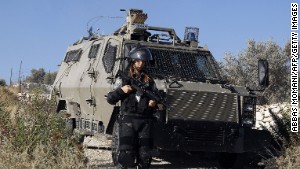 IDF: Soldier believed captured
IDF: Soldier believed captured
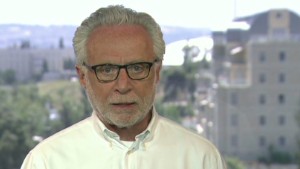 Violence restarts amid cease-fire
Violence restarts amid cease-fire
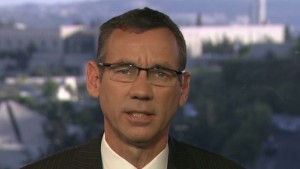 Israel: Our troops were attacked in Gaza
Israel: Our troops were attacked in Gaza
The IDF told a different
version, saying its troops in Rafah were attacked in a "brutal incident"
that required them to defend themselves. At the same time, rockets were
fired from Gaza into southern Israel, Mark Regev, spokesman for
Israel's Prime Minister, told CNN.
Israeli officials told CNN the cease-fire is over as far as Israel is concerned.
U.S.: Hamas used cease-fire as cover for attack
A top U.N. official appeared to lean toward Israel's account of Friday's events.
If the clash in Rafah is
corroborated, it would be a violation by Gaza militants of the
cease-fire that had been in place, said Robert Serry, U.N. special
coordinator for the Middle East peace process. The violation would be
"condemned in the strongest terms," he said.
The narrative emerging
from Washington was that Hamas used the cease-fire as cover to attack
the soldiers in the tunnel. White House Press Secretary Josh Earnest and
U.S. Deputy National Security Adviser Tony Blinken used this same
language in remarks Friday. Earnest called the turn of events "rather
barbaric."
But the military wing of
Hamas disputes that. According to the Al Qassam Brigades, their
operation and the capture of the soldier happened before the cease-fire
took effect and was in response to Israeli advances in Rafah overnight.
A Hamas spokesman said
Israel broke the Friday cease-fire before and after the hiatus by
advancing its forces near civilian areas in Rafah and by occupying
civilian homes to use as sniper positions.
"We found ourselves
having no choice but to respond to the Israeli advance, which was a
violation of the cease-fire agreement. As a result of our response to
this violation, the Israeli army started firing and shelling
indiscriminately against Palestinian civilians," spokesman Fawzi
Barhoum, the group's spokesman said in an interview on Al-Aqsa TV, the
Hamas-run outlet.
U.S. Secretary of State John Kerry called the attack "an outrageous violation of the cease-fire."
"The international
community must now redouble its efforts to end the tunnel and rocket
attacks by Hamas terrorists on Israel and the suffering and loss of
civilian life," he said in a statement Friday.
CNN teams in Gaza also witnessed the following as the cease-fire crumbled:
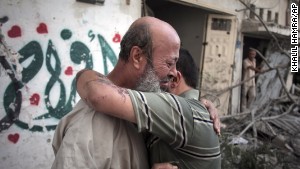 Israel agrees to a 72-hour cease-fire
Israel agrees to a 72-hour cease-fire
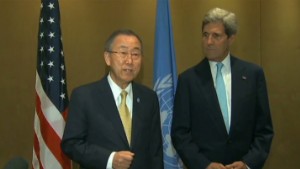 U.S., U.N. announce 72-hour cease-fire
U.S., U.N. announce 72-hour cease-fire
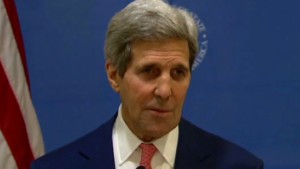 Kerry: It's a moment of opportunity
Kerry: It's a moment of opportunity
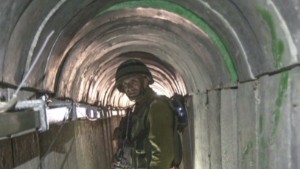 A look inside "lower Gaza" tunnels
A look inside "lower Gaza" tunnels
-- At about 10:30 a.m.
local time, 2½ hours after the cease-fire was implemented, Israeli tanks
could be seen maneuvering in Tofah, in east Gaza. At least three tank
rounds were fired.
-- At about 11:30 a.m., warning shots were fired as a CNN crew approached a destroyed building, likely by militants.
-- At about 11:45 a.m., CNN witnessed three rockets being fired from eastern Gaza toward Israel.
-- At about 12:30 p.m.,
Gazans reported receiving robo-calls, apparently from the IDF, warning
residents to stay inside their homes for their own safety.
Israel had said truce would not interrupt destruction of tunnels
The humanitarian truce
had been announced Thursday by the United Nations and United States,
after weeks of fighting and more than 1,500 deaths in Gaza, most of them
civilians. It came into effect at 8 a.m. Friday in Gaza (1 a.m. ET).
Kerry and U.N.
Secretary-General Ban Ki-moon had said the halt to hostilities was
planned to last for 72 hours and provide an opportunity to seek a more
lasting solution to the conflict.
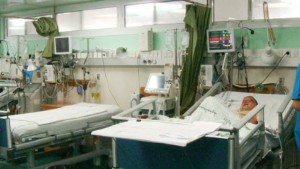 Lack of electricity fuels chaos in Gaza
Lack of electricity fuels chaos in Gaza
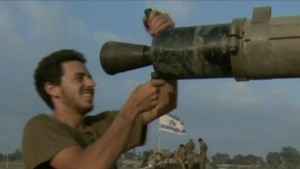 'Precision' airstrikes hitting civilians
'Precision' airstrikes hitting civilians
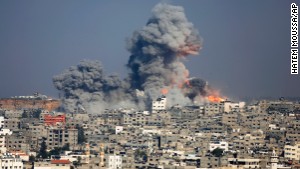 Inside the Israel-Gaza conflict
Inside the Israel-Gaza conflict
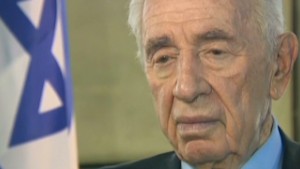 Peres: 'What can we do?'
Peres: 'What can we do?'
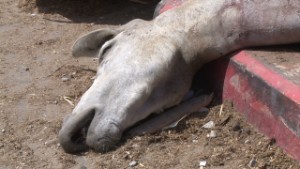 Brutal scene after attack at U.N. school
Brutal scene after attack at U.N. school
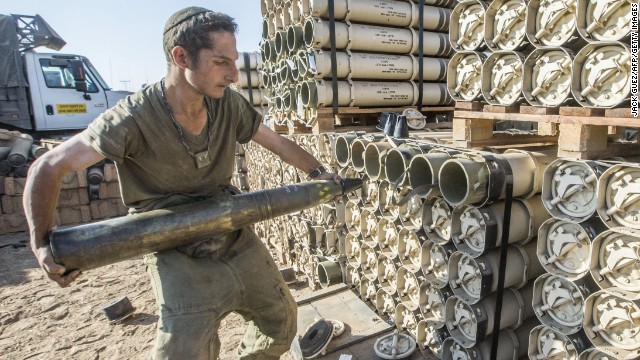 Photos: Israel-Gaza crisis
Photos: Israel-Gaza crisis
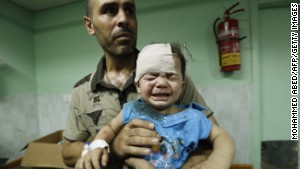 Could Israel face war crimes charges?
Could Israel face war crimes charges?
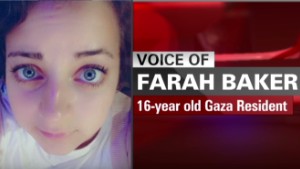 16-year-old describes life in Gaza
16-year-old describes life in Gaza
Many Gaza residents have
seen their neighborhoods hit hard and loved ones killed or wounded
since Israel began Operation Protective Edge against Hamas on July 8.
Around a quarter of a
million people in the small, impoverished territory have been displaced
by the conflict, according to the United Nations. That's about 14% of
Gaza's population of 1.8 million.
The conflict has caused
outrage around the world, including in the Palestinian West Bank, where
thousands protested on Friday. One Palestinian was killed in Tulkarem
during clashes with the Israeli military, Palestinian paramedics told
CNN.
Before the cease-fire
plan was announced, Israeli Prime Minister Benjamin Netanyahu had said
Israeli troops would continue destroying Hamas' network of tunnels that
run under the border into Israel with or without a truce.
Hamas has said it wants
an end to Israel's blockade on Gaza, which restricts the movement of
goods and people. It also wants the release of prisoners detained by the
Israelis.
Israel, meanwhile, has
says it is aiming for the demilitarization of Hamas-controlled Gaza,
removing the threat that militant weapons pose to Israeli civilians.
Those killed in the current hostilities include 327 children and 166 women, the Gaza health ministry reports.
The bloodshed prompted
the United Nations' top human rights official to warn that war crimes
may have been committed, accusing Israel of "deliberate defiance of
obligations (to) international law."
Three civilians have
been killed in Israel since the conflict began, while many more have
been forced to take shelter as rockets rained overhead. Sixty-one
Israeli soldiers have been killed during the hostilities, with five of
those deaths occurring Thursday evening.
No comments:
Post a Comment